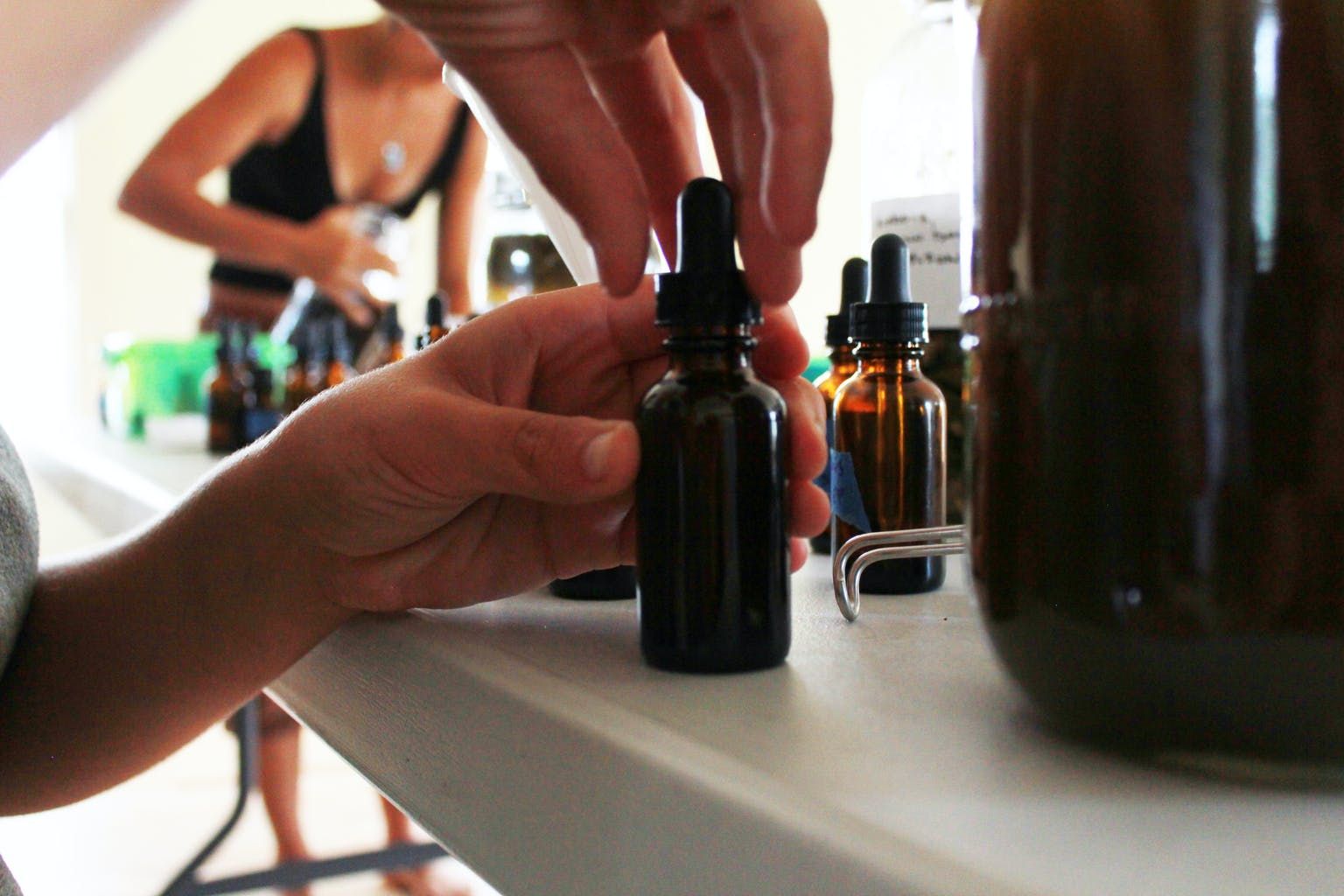Research on the medical effects of cannabidiol (CBD), the most common non-psychoactive cannabinoid found in marijuana, has shown that CBD has many beneficial effects. It can be used to treat nausea and vomiting, seizures, anxiety, depression, psychosis, inflammation, and the list goes on. When taken in combination with tetrahydrocannabinol (THC), the cannabinoid responsible for causing a euphoric high, marijuana has been shown to reduce brain tumors as well as shrink breast tumors in animal subjects.
But because a majority of CBD comes from the marijuana plant, it often falls under the classification of a Schedule I narcotic. Its use and availability are therefore restricted to those states with medical marijuana laws.
As of September 2015, 28 states, the District of Columbia and Guam have passed medical marijuana legislation. What this means is that the remaining 22 states aren’t able to legally access cannabis-based CBD products.
FOLLOW US ON FACEBOOK & INSTAGRAM
Yet a quick search online reveals hundreds of CBD products that are deemed legal to buy and ship across state lines. These products are legal, because they’re made from the hemp plant and not marijuana.
So, what’s the difference between cannabis CBD and hemp CBD? And why is one restricted and the other not?
The Most Studied Cannabinoids: THC & CBD
The two most abundant cannabinoids in cannabis are THC and CBD. Their abundance and the euphoria-inducing effects of THC make them the most studied compounds in the plant. Similar to CBD, THC has been associated with medical benefits including for:
- Pain
control - Mood
stabilization - Sleep improvement
- Appetite
enhancement - Inflammation
reduction - Spasticity in those with multiple
sclerosis - Asthma
CBD can often
lessen
the high of THC, especially when taken at higher concentrations. This is why many scientists have attempted to manipulate the plant’s compounds or increase the concentration of CBD while, at the same time, decreasing THC levels. Their goal: to enhance its medical effects while reducing its psychoactive effects.
CBD Derived From Hemp
It makes sense then, that scientists looked at hemp as a possible solution to finding a much higher balance of CBD to THC.
Hemp is a variety of the cannabis sativa plant, which contains very little THC (0.3% or less) and has a higher ratio of CBD to THC than marijuana does.
RELATED: 6 REASONS TO CONSUME HEMP CBD
Hemp has been used for centuries for clothing, sailcloth, rope, paper, medicine and cosmetics. Modern uses include plastics, food, animal food, animal bedding, construction, nutritional supplements and essential oils.
Prior to World War II, hemp was one of the biggest agricultural products in the United States. However, farming and production began dropping after the Marijuana Act of 1937, and it
became illegal in 1970.
Hemp products, however, can be imported as long as the product comes from plants that contain less than 0.3% THC and are derived from the seed or stalk of the plant rather than the leaves or flowers.
When the benefits of CBD started becoming known, companies around the world began creating hemp-based CBD-concentrated oils. These products are legal to buy and use in all 50 states as long as the product adheres to the import rules regarding THC. Although this sounds like a good
solution to the problem of providing high-CBD and low-THC products, there’s a problem: a lack of quality control.
Does Hemp-Based CBD Pass Muster, and Is It Safe? It Depends
In the U.S., drugs must undergo rigorous testing and quality checks before they can make claims about effects and be put out on the market. This isn’t true in many other countries, and in February 2015, the U.S. Food and Drug Administration issued several warning letters to hemp-based CBD manufacturers regarding their medical claims.
While these products were being sold as dietary supplements, which have fewer restrictions than drugs do, the manufacturers were making a number of medical claims, including ones that stated that their products could treat, cure or prevent a number of diseases including cancer. Even worse was that scientific evaluation of their chemical components revealed that many of the products contained little or no CBD despite being labeled as a CBD-containing product.
Quality control issues also revealed that some imported hemp-based CBD oils contain other unwanted chemicals, such as pesticides and heavy metals. Additionally, because CBD levels in hemp are still lower than those found in cannabis, it requires large amounts of hemp plants to produce CBD oil, which increases the risk of
contaminants.
There have been some reports of side effects associated with hemp-based CBD oil such as:
- Stomach upset
- Dysphoria (distorted mental state) in high doses
That said, some quality hemp-based CBD products can provide relief for patients. Yet, leaders in the medical marijuana community claim that marijuana-derived CBD holds more medicinal benefits because of the other cannabinoids present.
Is Hemp Made in the USA?
Many of the states that have passed medical marijuana legislation have passed CBD-only laws in an effort to reduce access to the intoxicating effects of THC. This means that the demand for CBD-based products is going to increase.
In 2014, federal legislation lifted the ban on hemp farming in states that had begun to legislate hemp research. Thirteen states have passed laws establishing commercial industrial hemp programs, and another seven have approved programs for the agricultural and academic research of hemp. What this means is that hemp-based products that have undergone rigorous testing and quality control may become available on the market. While hemp-based, American-made oils may not be ready in the near future, there’s hope for those who can’t access plant-based CBD products.
Photo credit: Sterling College






